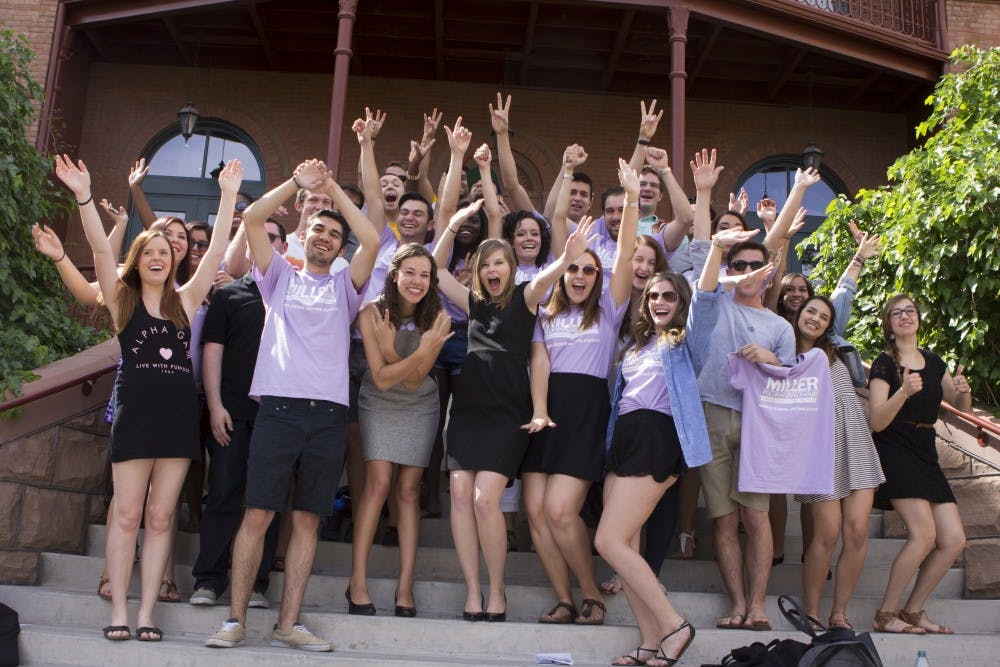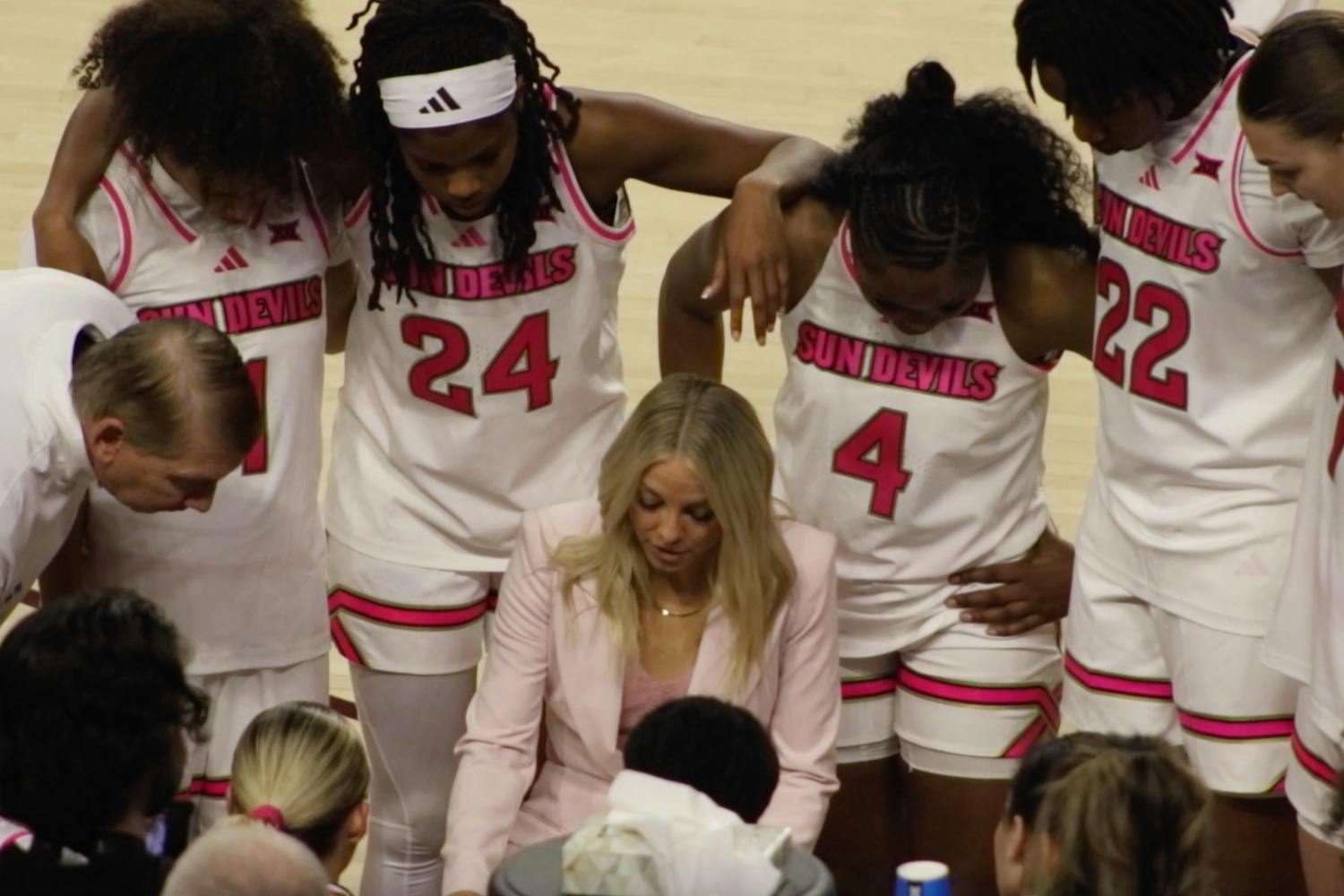In high school, I ran for senior class president with no real platform other than I was hardworking and equipped with treats to buy my peers' votes. I’d like to think I won the election because my classmates believed in me, but something tells me the Rice Krispies Treats I passed out had something to do with it. My friends in different cliques also didn’t hurt my chances.
Now that campaigning for ASU’s student government is underway, I’m beginning to realize not much has changed since high school. ASU student government elections are popularity contests, they're all about who knows whom.
The executive ticket with the biggest social circle typically wins. If an individual is involved in a multitude of organizations or clubs, its implied they’ll receive the most support. But proceed with caution: Just because a student is heavily involved on campus, it doesn’t mean they’re equipped with the leadership skills to take on an executive position for the University.
Friends support friends, believe me. It’s a tactic I know all about.
Just hours into the first day of campaigning for student government positions, my Facebook feed was filled with statuses and photos of who supports whom, but how is a few hours enough time to research each candidate’s platform and make an educated endorsement?
Supporting someone without doing research is like voting for a government official just because they are of the same party. Like political elections, a person picks the party they're familiar with, instead of the one that would be best for the nation. Now take that sentence and replace party with person and nation with University — it holds true at a collegiate level, too.
Blindly supporting your friend could be problematic for the University as a whole. What if he or she doesn’t have the skill set to handle the position they're running for? What if he or she doesn’t believe in resolving the same issues on campus that you do? Without researching and making an educated decision, you are doing a disservice to ASU students and yourself.
Name recognition in these elections also plays a huge part in going home with the win. Perhaps a student doesn’t know anyone running personally, but they’ve heard the candidate's name once or twice and seen the name around campus. Votes can even stem solely from name recognition. Social media can be a key factor in student government elections, too. Candidates will make social media accounts advertising their platform and following ASU students, and for some students, a mere follow or like could influence their decision.
This election cycle, do yourself and your classmates a favor and look up information about each candidate running for student government. Usually, Undergraduate Student Government tickets will have entire websites dedicated to their campaign. Peruse around each campaign website and social media account to find out what they’re all about.
Besides, we owe it to the people running to do our research. These candidates don’t set up these elaborate campaigns for nothing.
It’s our job as students of the largest university in the nation to make an educated vote for our student government. If we want to be taken seriously as voters in the real world, it starts here.
Related Links:
Sorting through the dialogue: The story behind an ASU senator's impeachment
USG-Tempe President Isaac Miller on his background, policy goals and the nature of leadership
Reach the columnist at ambice@asu.edu or follow @alliebice on Twitter.
Editor’s note: The opinions presented in this column are the author’s and do not imply any endorsement from The State Press or its editors.
Want to join the conversation? Send an email to opiniondesk.statepress@gmail.com. Keep letters under 300 words and be sure to include your university affiliation. Anonymity will not be granted.
Like The State Press on Facebook and follow @statepress on Twitter.




